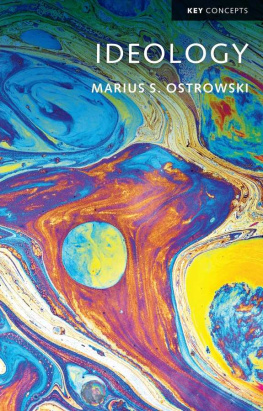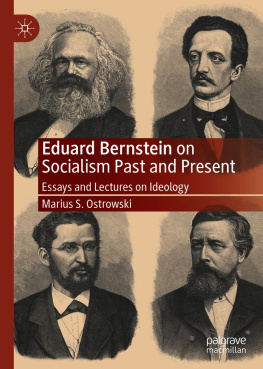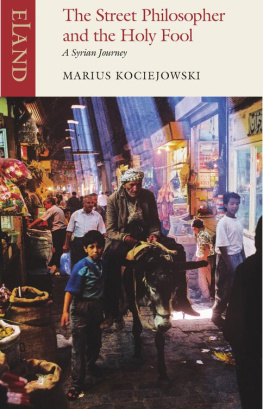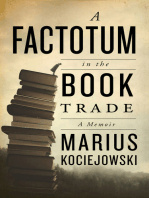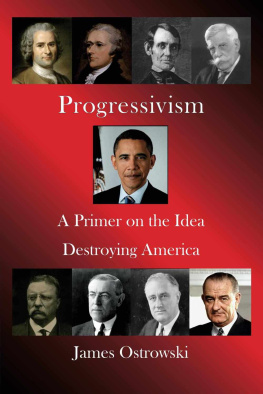Marius S. Ostrowski - Ideology
Here you can read online Marius S. Ostrowski - Ideology full text of the book (entire story) in english for free. Download pdf and epub, get meaning, cover and reviews about this ebook. year: 2022, publisher: Wiley, genre: Politics. Description of the work, (preface) as well as reviews are available. Best literature library LitArk.com created for fans of good reading and offers a wide selection of genres:
Romance novel
Science fiction
Adventure
Detective
Science
History
Home and family
Prose
Art
Politics
Computer
Non-fiction
Religion
Business
Children
Humor
Choose a favorite category and find really read worthwhile books. Enjoy immersion in the world of imagination, feel the emotions of the characters or learn something new for yourself, make an fascinating discovery.
- Book:Ideology
- Author:
- Publisher:Wiley
- Genre:
- Year:2022
- Rating:3 / 5
- Favourites:Add to favourites
- Your mark:
- 60
- 1
- 2
- 3
- 4
- 5
Ideology: summary, description and annotation
We offer to read an annotation, description, summary or preface (depends on what the author of the book "Ideology" wrote himself). If you haven't found the necessary information about the book — write in the comments, we will try to find it.
Ideology — read online for free the complete book (whole text) full work
Below is the text of the book, divided by pages. System saving the place of the last page read, allows you to conveniently read the book "Ideology" online for free, without having to search again every time where you left off. Put a bookmark, and you can go to the page where you finished reading at any time.
Font size:
Interval:
Bookmark:
- Chapter 3
- Chapter 4
- Chapter 5
- Chapter 2
- Chapter 4
- Chapter 5
- Chapter 6
- Barbara Adam, Time
- Alan Aldridge, Consumption
- Alan Aldridge, The Market
- Jakob Arnoldi, Risk
- Will Atkinson, Class
- Colin Barnes and Geof Mercer, Disability
- Darin Barney, The Network Society
- Mildred Blaxter, Health 2nd edition
- Harriet Bradley, Gender 2nd edition
- Harry Brighouse, Justice
- Mnica Brito Vieira and David Runciman, Representation
- Steve Bruce, Fundamentalism 2nd edition
- Joan Busfield, Mental Illness
- Damien Cahill and Martijn Konings, Neoliberalism
- Margaret Canovan, The People
- Andrew Jason Cohen, Toleration
- Alejandro Cols, Empire
- Patricia Hill Collins and Sirma Bilge, Intersectionality 2nd edition
- Mary Daly, Welfare
- Anthony Elliott, Concepts of the Self 4th edition
- Steve Fenton, Ethnicity 2nd edition
- Katrin Flikschuh, Freedom
- Michael Freeman, Human Rights 4th edition
- Russell Hardin, Trust
- Geoffrey Ingham, Capitalism
- Fred Inglis, Culture
- Robert H. Jackson, Sovereignty
- Jennifer Jackson Preece, Minority Rights
- Gill Jones, Youth
- Paul Kelly, Liberalism
- Anne Mette Kjr, Governance
- Ruth Lister, Poverty 2nd edition
- Cillian McBride, Recognition
- Jon Mandle, Global Justice
- Marius S. Ostrowski, Ideology
- Anthony Payne and Nicola Phillips, Development
- Judith Phillips, Care
- Chris Phillipson, Ageing
- Robert Reiner, Crime
- Michael Saward, Democracy
- William E. Scheuerman, Civil Disobedience
- John Scott, Power
- Timothy J. Sinclair, Global Governance
- Anthony D. Smith, Nationalism 2nd edition
- Joonmo Son, Social Capital
- Deborah Stevenson, The City
- Leslie Paul Thiele, Sustainability 2nd edition
- Steven Peter Vallas, Work
- Stuart White, Equality
- Michael Wyness, Childhood
Marius S. Ostrowski
polity
Copyright Marius S. Ostrowski 2022
The right of Marius S. Ostrowski to be identified as Author of this Work has been asserted in accordance with the UK Copyright, Designs and Patents Act 1988.
First published in 2022 by Polity Press
Polity Press
65 Bridge Street
Cambridge CB2 1UR, UK
Polity Press
101 Station Landing
Suite 300
Medford, MA 02155, USA
All rights reserved. Except for the quotation of short passages for the purpose of criticism and review, no part of this publication may be reproduced, stored in a retrieval system or transmitted, in any form or by any means, electronic, mechanical, photocopying, recording or otherwise, without the prior permission of the publisher.
ISBN-13: 978-1-5095-4072-3
ISBN-13: 978-1-5095-4073-0 (pb)
A catalogue record for this book is available from the British Library.
Library of Congress Control Number: 2021948304
by Fakenham Prepress Solutions, Fakenham, Norfolk NR21 8NL
The publisher has used its best endeavours to ensure that the URLs for external websites referred to in this book are correct and active at the time of going to press. However, the publisher has no responsibility for the websites and can make no guarantee that a site will remain live or that the content is or will remain appropriate.
Every effort has been made to trace all copyright holders, but if any have been overlooked the publisher will be pleased to include any necessary credits in any subsequent reprint or edition.
For further information on Polity, visit our website: politybooks.com
The history of ideology theory
An overview of ideologies historical development
The ideological compass
Ideological apparatuses operations over the life cycle
Sources of ideological influence
The ideology studies compass
The criteria of ideological characterisation
Social domains
Overview of ideologies social morphologies
Ideological apparatuses across social domains
In 1967, in his essay Negative and Positive Freedom, the philosopher Gerald MacCallum put forward a deceptively simple but at the time profoundly radical claim: that the idea of freedom referred to a single concept. To understand the radicalism of MacCallums proposition, we have to recall its intellectual context. Under the shadow of recent and ongoing conflicts between liberal democracy and fascist and communist totalitarianism, the philosophical study of freedom had settled on the view, developed by Erich Fromm in 1941 and popularised by Isaiah Berlin in 1958, that there was an irreducible bifurcated distinction between two supposedly incompatible concepts of freedom, each with their own lengthy intellectual traditions. One was negative freedom, x is (is not) free from y, defined as the absence of any external interference or constraint; the other, positive freedom, x is (is not) free to y, the capacity to enact ones will and achieve ones aims and potential. With his intervention, MacCallum sought to upend this established consensus. He suggested a formulation that could unite these two understandings, which he termed the triadic relation: x is (is not) free from y to do (not do, become, not become) z. The term freedom, he concluded, was in fact a single concept; and its negative and positive interpretations were not mutually unintelligible concepts or traditions but merely two conceptions, two ways of looking at the same concept from different angles. MacCallums essay has become a staple presence on Anglo-American political philosophy syllabi. Every year, legions of students are invited to consider whether the various defenders and detractors of negative and positive freedom and of its recently recovered sibling republican freedom are representatives of colossal worldviews talking blindly past one another or indulging the narcissism of the tiniest differences by exaggerating tweaks of perspective into grandiose existential feuds.
It is a similar situation with the concept of ideology. One of the first choices you have to make when writing about ideology under pressure from representatives of different methodological perspectives, from Marxism to poststructuralism, from comparative politics to social psychology is whether to run with the idea that there are many incommensurable meanings of the term or insist on staking out a patch of analytical common ground with a concept of ideology on which the various different sides can put their unique spin. There are persuasive defences by eminent names within ideology theory arrayed on either side: to name only a few, Raymond Boudon, Terry Eagleton, and John Thompson for the former approach, David Manning and Martin Seliger for the latter. In very broad terms, the first camp takes the view that ideology is used to refer (correctly or incorrectly, sincerely as well as insincerely) to a host of social phenomena that have only a loose connection with one another or even contradict one another outright and that only some should be included in the formal study of ideology, others excluded from it, but all kept rigorously analytically distinct. The second camp, meanwhile, insists that such diversity of phenomena illustrates above all the social pervasiveness and complexity of ideology but does not eliminate the possibility or obviate the need to find a way of bringing all of them theoretically under the same roof, precisely to reflect the fact that ideology is implicated in all of them, no matter how differently or (seemingly) incompatibly. In this book, I side with the second camp. The upshot is an account of ideology that acknowledges the cumulative wisdom of different ways of analysing it but carves a path towards a definition that is of interest, and of use, to all the areas of social life and social research in which ideology appears. Neither the fall of Babel of Genesis narrative, then, nor the angels dancing on a pinhead of anti-scholastic polemic, but a judicious ecumenism.
Font size:
Interval:
Bookmark:
Similar books «Ideology»
Look at similar books to Ideology. We have selected literature similar in name and meaning in the hope of providing readers with more options to find new, interesting, not yet read works.
Discussion, reviews of the book Ideology and just readers' own opinions. Leave your comments, write what you think about the work, its meaning or the main characters. Specify what exactly you liked and what you didn't like, and why you think so.

